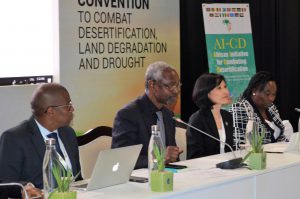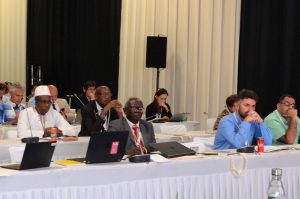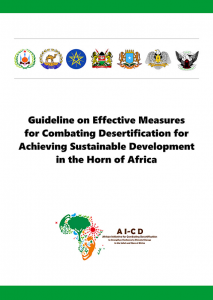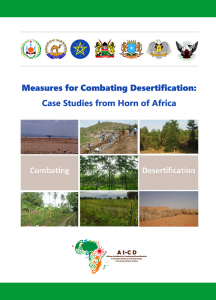Overview
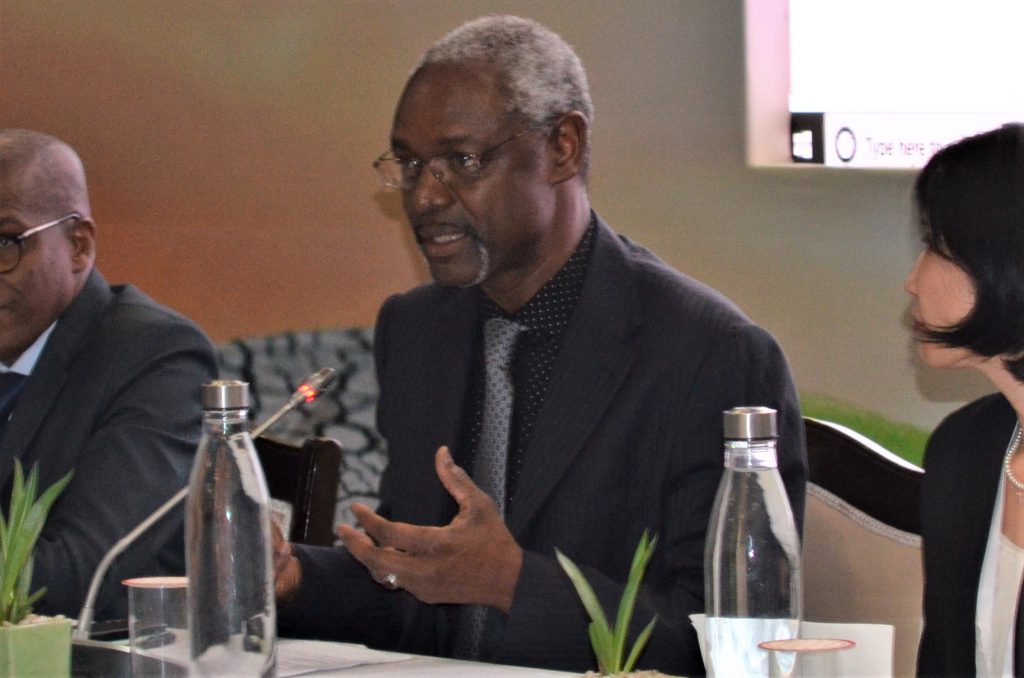
Keynote speech being delivered by Mr. Ibrahim Thiaw, Executive Secretary of the United Nations Convention to Combat Desertification (UNCCD)
The Side Event of the African Initiative for Combating Desertification (AI-CD) during the United Nations Convention to Combat Desertification (UNCCD) COP14 was held on 5th September 2019 at the India Expo Mart in India. As many as around 100 participants attended the side event from Africa and other countries, CSOs, development partners, universities and private entities.
Mr. Ibrahim Thiaw, Executive Secretary of UNCCD, opened the side event by giving a keynote speech. Based on his long experience in Africa including the Horn of Africa and the Sahel regions, the Executive Secretary emphasised the importance of African countries taking ownership of combating desertification, and expressed his expectation for AI-CD.
During the side event, a launch ceremony for the “Guideline on Effective Measures for Combating Desertification for Achieving Sustainable Development in the Horn of Africa” and “Case Studies” took place, where representatives from Kenya, Senegal and JICA cut the ribbon. The guidelines were compiled making use of good practices collected and shared by AI-CD participating countries from the Horn of Africa, with the initiatives of the Ministry of Environment and Forestry (MEF), Kenya, and Kenya Forestry Research Institute (KEFRI). These guidelines were distributed to the side event participants and will also be available on the AI-CD website.
In the panel discussion, representatives from African countries and partner organisations such as African Development Bank (AfDB) and the Sustainable Trade Initiative (IDH), which manages the Land Degradation Neutrality Technical Assistance Facility (LDN TAF) from the private sector, took the stage. They discussed how to effectively promote measures for combatting desertification and climate change adaptation and achieve the Sustainable Development Goals (SDGs) by 2030 by strengthening access to finance and collaborating with the private sector.
Highlights of the Forum
(1) Event Opening
The side event commenced with a keynote speech by Mr. Ibrahim Thiaw, Executive Secretary of UNCCD, a co-organiser of AI-CD. Because the Executive Secretary is from Mauritania, one of the AI-CD participating countries that is seriously affected by desertification, he spoke from his own experiences and emphasised that AI-CD should be further promoted in view of the importance of ownership of African countries.
Next to speak was Mr. Baidy Ba, Head of Forestry and Soil Conservation Division, Directorate of Water, Forestry, Hunting and Soil Conservation under the Ministry of Environment and Sustainable Development (MESD) of Senegal. Mr. Ba reminded that there is no other way but to enhance action against desertification and remain focused on managing natural recourses and rehabilitation of degraded land.
Finally, Ms. Misa Kemmiya, Senior Director of JICA’s Global Environment Department, made the introductory remarks. As a message from TICAD VII held in Yokohama in August 2019 shortly before the COP14, Ms. Kemmiya stressed the importance of integrated approach for combatting desertification under the climate change adaptation framework and of partnership on harmonisation among ongoing efforts by development partners and the private sector. She also expressed hope to strengthen partnerships and global efforts to achieve tangible results through AI-CD.
(2) Launch of the AI-CD Guideline and Case Studies
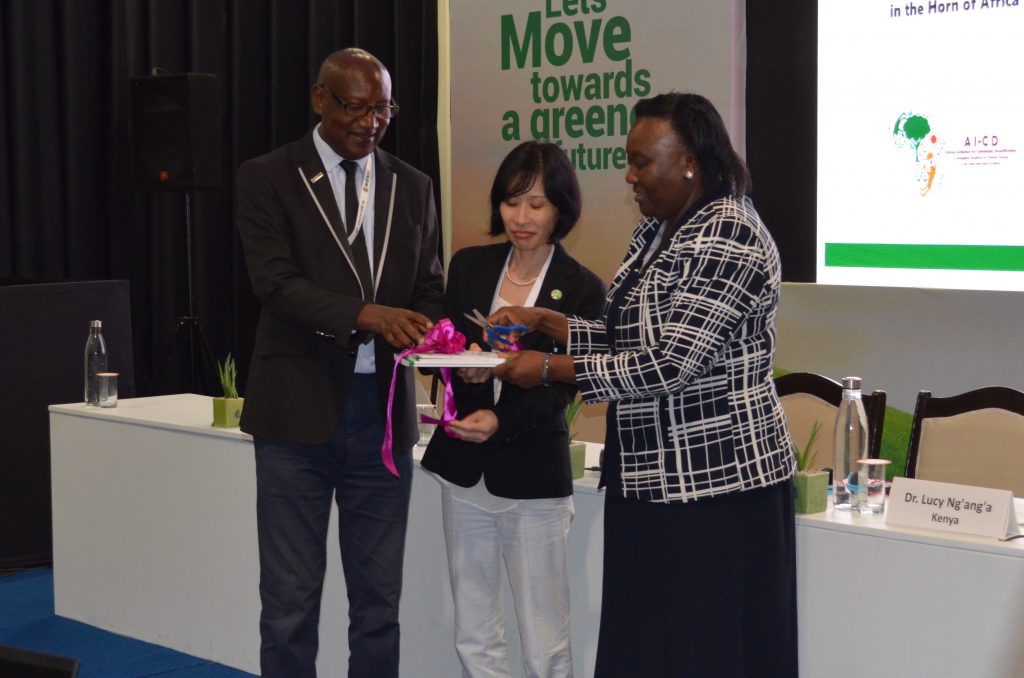
Ribbon-cutting by representatives from Senegal, Kenya and JICA at the launch ceremony of the AI-CD Guideline
The “Guideline on Effective Measures for Combating Desertification for Achieving Sustainable Development in the Horn of Africa” and “Case Studies” were compiled making use of good practices collected and shared by participating countries from the Horn of Africa. The compilation of the guideline was organised by the strong leadership of MOEF and KEFRI and deep engagement by participating countries from the Horn of Africa, with the aim to make use of shared knowledge for policy planning and implementation.
A launch ceremony for the guideline took place, where the ribbon-cutting was made by Mr. Baba Ba from Senegal, Dr. Lucy Ng’ang’a from Kenya and Ms. Kemmiya from JICA. The guideline was distributed to the participants of the side event.
| AI-CD Guideline on Effective Measures for Combating Desertification for Achieving Sustainable Development in the Horn of Africa | AI-CD Measures for Combating Desertification: Case Studies from Horn of Africa |
(3) AI-CD Updates
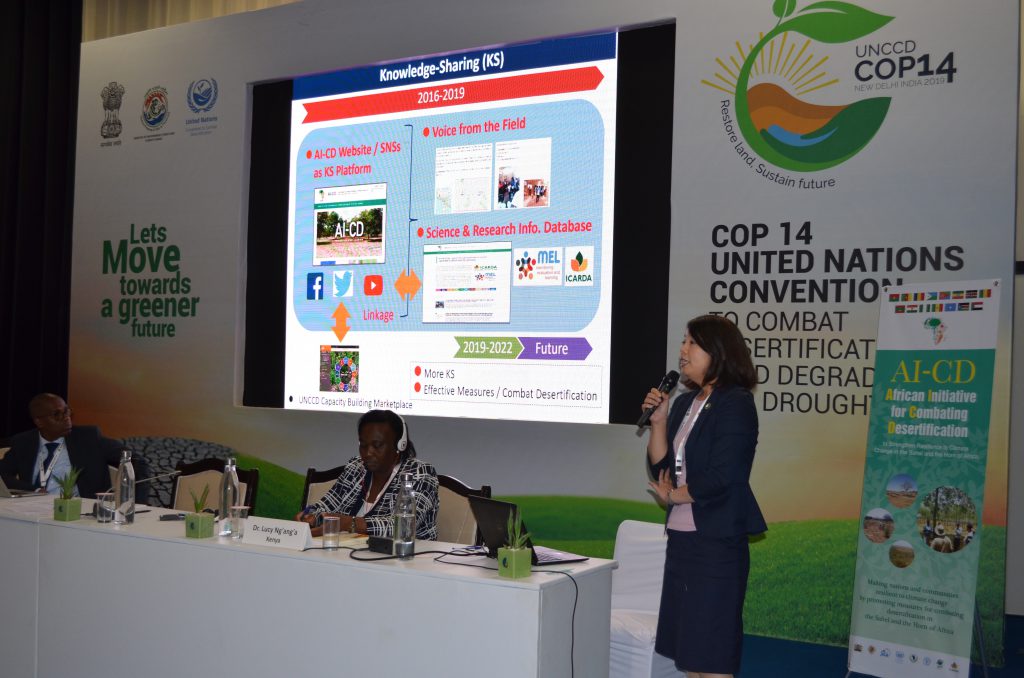
KEFRI, MESD and JICA reported on the progress of AI-CD. Above all, efforts on access to finance, including the preparation of concept notes with the aim to develop fundable projects, were emphasised for both the Horn of Africa and the Sahel regions. JICA introduced its contribution to AI-CD, including its role as the AI-CD Secretariat, in facilitating training opportunities in Japan, and in providing a sand and dust storm (SDS) information system called SPRINTARS in cooperation with Kyushu University in Japan. Additional information on SPRINTARS is available on the AI-CD website.
(4) Panel Discussion
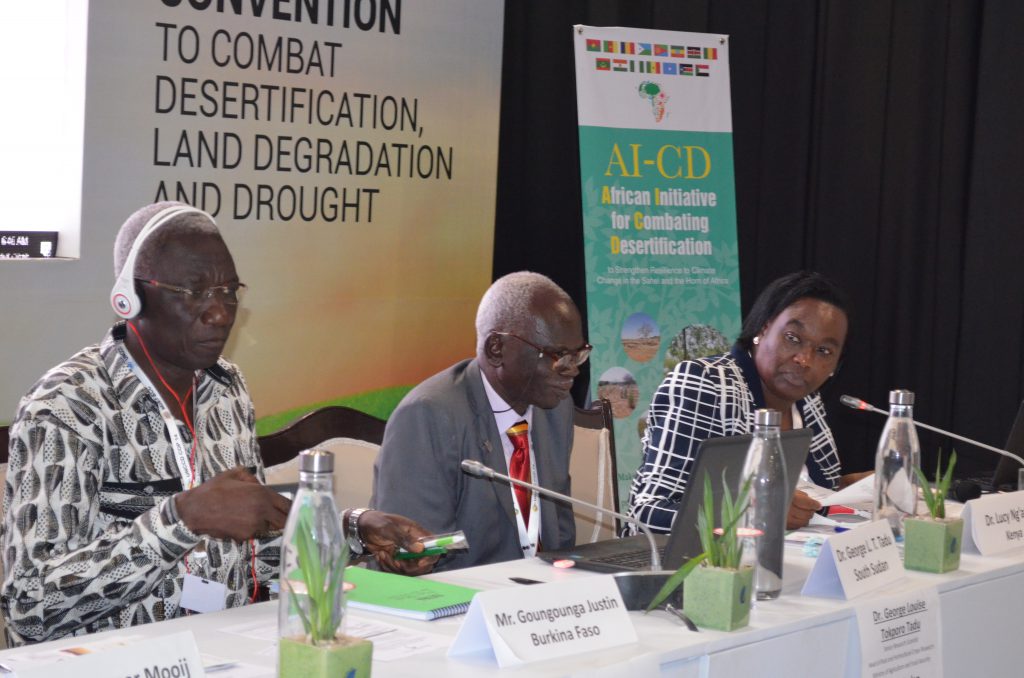
Taking into account the challenges and good practices of African countries, discussions were made on how to effectively promote measures for desertification and climate change adaptation and achieve the SDGs by 2030 through strengthening of access to finance, collaborating with the private sector, and utilising data and science and technology.
The panel discussion welcomed representatives from African countries, ICARDA, African Development Bank (AfDB) and the Sustainable Trade Initiative (IDH). IDH manages the Technical Assistance Facility (TAF) of the Land Degradation Neutrality Fund, a private investment fund under the UNCCD framework. First, panellists from South Sudan and Burkina Faso presented the challenges facing African countries, and then the discussion was opened on how to address desertification and climate change by forming fundable projects and scaling them up in cooperation with financial mechanisms and the private sector under the African countries’ initiative. AfDB and IDH gave their opinions on how to promote multi-sector partnership and effective funding mobilisation. ICARDA also expressed their view that it is important to implement innovative projects using innovative technologies and approaches in order to involve the private sector. Finally, Ms. Lucy expressed gratitude to the participants with the strong words, “together, we will continue to discuss the issue of combatting desertification”.
Panellists
1. Dr. George Louise Tokporo Tadu, Senior Research Scientists, Head of Root and Horticultural Crops Research, Ministry of Agriculture and Food Security, South Sudan
2. Mr. Goungounga Justin, Permanent Secretary, National Council for Sustainable Development (SP-CNDD), Ministry of the Environment, Green Economy and Climate Change, Burkina Faso
3. Mr. Enrico Bonaiuti, Monitoring Evaluation and Learning Specialist, Monitoring, Evaluation and Impact Reporting Unit, International Center for Agricultural Research in the Dry Areas (ICARDA)
4. Mr. Arona Soumare, Principal Climate and Green Growth Officer, Climate Change and Green Growth Department, African Development Bank Group
5. Ms. Dagmar Mooij, Program Officer, IDH, LDN Fund, Technical Assistance Facility
Moderator
Dr. Lucy Ng’ang’a, Acting Director, Multilateral Environmental Agreements, Ministry of Environment and Forestry, Kenya

